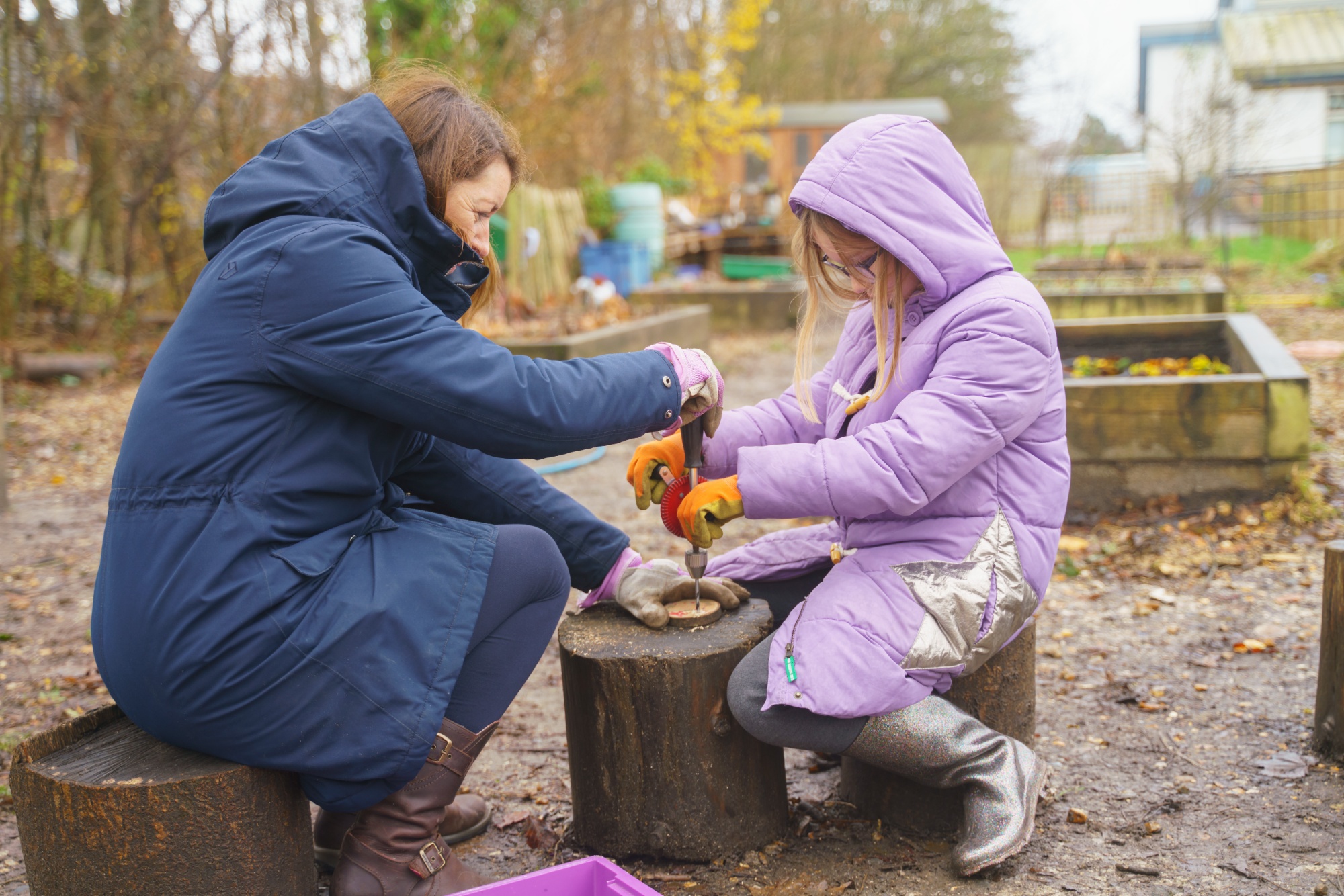
Outdoor Learning
At Manor Park First School we recognise the importance of Outdoor learning. Outdoor learning in education is a planned and purposeful approach that uses activities and resources to enhance learning, mental health and wellbeing, and environmental awareness. It can be done both on-site (within school grounds) or off-site (such as on school trips) It offers a stimulating and engaging approach to learning and teachers can confidently weave it into the existing curriculum with minimal additional resources. Taking learning outdoors can have a major impact on the learning and development of children. It will develop the innate curiosity of the child, encourage respect for living organisms and the physical environment and develop a variety of skills that can be utilised across their learning. From enhancing problem solving skills to communication and resilience, outdoor learning provides endless opportunities for exploration, experimentation and contextual learning.

At Manor Park we understand through outdoor learning;
Child development is enhanced. By moving away from standard classroom based learning, children can embrace a greater sense of freedom and independence: essential contributors to their development. Research has even suggested that outdoor learning boosts confidence, social skills, communication, motivation, physical skills; fine and gross motor, knowledge and understanding. It has also been found to boost children’s self-esteem, self-confidence, ability to work cooperatively and positive attitude to learning.
Curriculum learning is enhanced. Many pupils thrive learning outside and that this shift in environment and a practical approach can actually help certain concepts come alive and be easier to understand. Learning outside isn’t an unnecessary add-on: it’s a way to deepen children’s learning experience by encouraging them to acquire knowledge and skills in a new and exciting way.
Children’s relationship with nature improves “If children don’t grow up knowing about nature and appreciating it, they will not understand it. And if they don’t understand it, they won’t protect it. And if they don’t protect it, who will?”
Sir David Attenborough
Health and wellbeing improves There is an enormous body of research available showing that time spent in nature can improve children’s mental health, confidence, mood and wellbeing. Likewise, a lack of learning outdoors is steadily resulting in a ‘Nature Deficit Disorder’, where spending less time outside is suggested to contribute to behavioural difficulties.
Education is more inclusive. All children are unique – they learn in different ways and for some, they can feel stifled by the classroom. Especially for children with special educational needs, the classroom can bring with it added stress. One of the many brilliant things about outdoor learning is that it gives more scope for inclusive activities and overall mindset. There are more possibilities and opportunities for all pupils to be together, experiencing the same range of activities. Plus, the sensory immersion opportunities are far higher and children feel less tied to one specific mode of learning.












